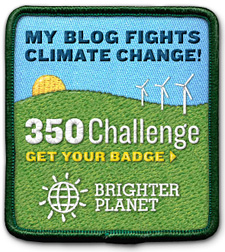Our lives depend on the oceans more than you might think. In
fact, most of the oxygen in our air is generated by the sea. Ever heard of the
Great Pacific Garbage Patch? Well, it’s a garbage patch that is twice the size
of Texas in the North Pacific. There’s also marine life to think about. About
100 million mammals and turtles are killed annually in the Pacific Ocean alone
because of plastic. Sea birds often starve to death because they eat too much of
it, and, as a result, cannot consume anything else. If you’re not an animal
lover, think about this, where do you think that salmon you had for dinner last
night came from? Plastic is poisoning the very fish you eat, because more than
likely they ingested plastic. So much for organic, right?
Realistically, landfills are expensive to build. Recycling 1
ton of plastic saves 7.4 cubic yards of landfill space. It’s for these reasons
that North Carolina banned plastic bottles in state landfills in 2009. The law was designed to reduce energy
consumption, provide economic incentives for entrepreneurs, and lower
greenhouse gas emissions. In the manufacturing of the plastic bottles, massive
amounts of greenhouse gases are produced. They are also produced as the bottles
are incinerated with the regular trash. Greenhouse
gases pose risks to our health and the ozone layer.
The amount of plastic bottles recycled in the U.S. has grown
steadily since 1990, but the actual recycling rate seems to remain steadily
around 27%, less than 1/3. Plastics should be recycled so less petroleum is
consumed. So, that means less drilling for oil.
But, raising awareness and recycling isn’t enough.
Yes, you can reclaim the bottles, and, yes, make new bottles
and other products at home. But, this is often time consuming and expensive. Not to mention, according to the Ecology
Center’s biggest plastic misconception, not all plastic containers put into the
recycling bin are recycled full and reprocessed or converted into useful
products. Understand that your choices aren’t limited to polluting the oceans
or recycling. There are other options . Go
bottleless! Purchase a reusable water bottle for when you’re on the go, or
a bottleless water cooler for your
office. Know that it’s not a choice
between the earth and your personal budget or health- you can do it all.






